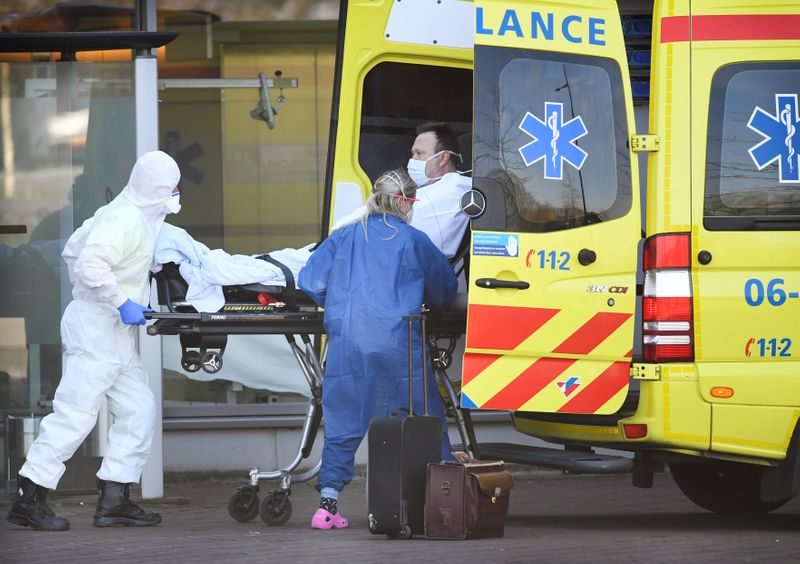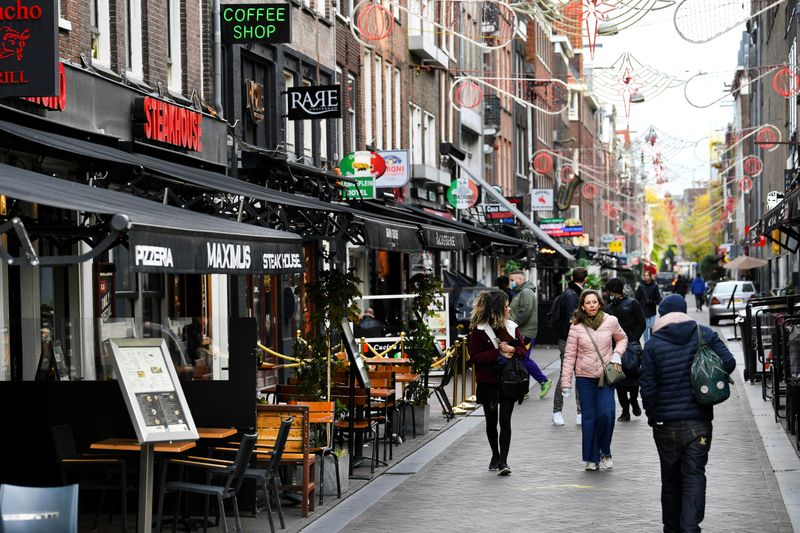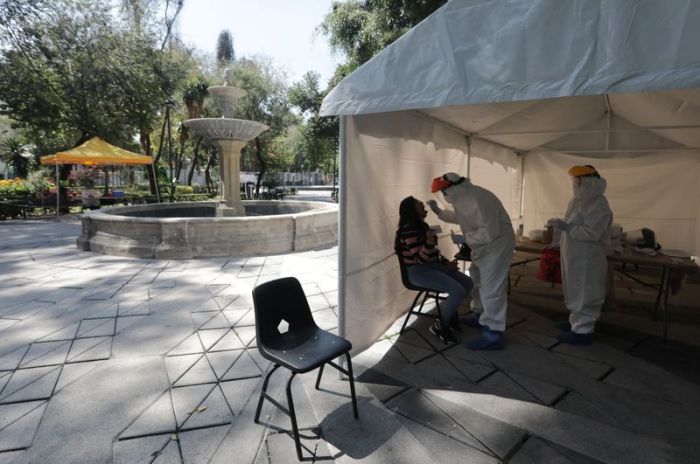AMSTERDAM (Reuters) – The Netherlands began transferring COVID-19 patients to Germany again on Friday, as hospitals come under increasing strain from a second wave of infections.
The Flevo hospital in the central Dutch town of Almere said it would transfer two of its intensive care patients by helicopter to a hospital in Muenster, around 65 km (40 miles) east of the Dutch-German border.
The transfers were the first during the second wave that began in the Netherlands early last month. During the first wave in March and April dozens of Dutch patients were transferred to Germany, where intensive care capacity is larger.
Dutch hospital association LCPS said it expected the transfer of four more patients to Germany over the weekend.
Infections in the Netherlands have reached a record high almost every day since mid-September and jumped to a new peak of almost 10,000 on Friday. Daily confirmed infections in Germany, where the population is almost five times bigger, were at 11,242.
Prime Minister Mark Rutte said it was too early to say whether a broader lockdown would be needed, even though he called the rate of infections very worrying.
“All scenarios are on the table”, Rutte told reporters.
“But we first need to get a better picture of the effects of the current measures.”
The government imposed partial lockdown measures last week, including the closure of all bars and restaurants.
The number of patients hospitalised with the coronavirus in has doubled in the past two weeks, while almost half of all intensive care beds are now being used for COVID-19 patients.
(Reporting by Anthony Deutsch and Bart Meijer; Editing by Philippa Fletcher and Andrew Cawthorne)


























